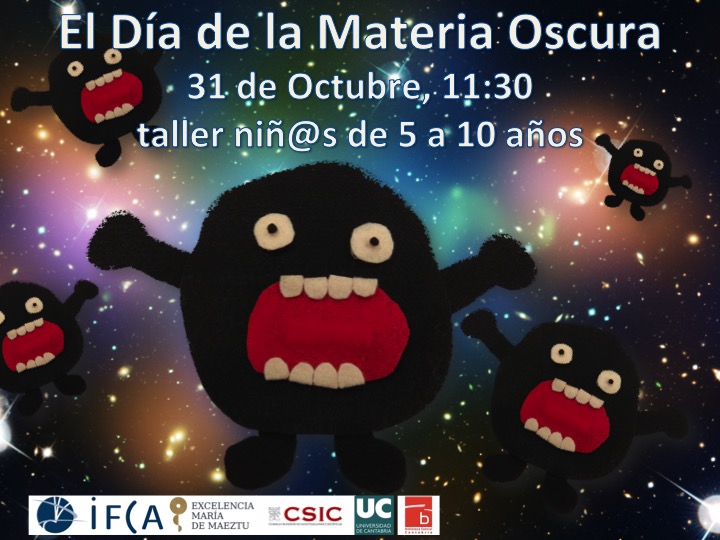
WHAT IS DARK MATTER?
There’s more to the universe than stars, planets, asteroids, comets, and space dust. In fact, there’s a lot more to the universe that we can’t yet explain.
Scientists believe that dark matter, which we have so far only detected through its gravity-based effects in space, makes up about a quarter (26.8 percent) of the total mass and energy of the universe, and something that is driving the universe’s accelerating expansion—which scientists call dark energy—accounts for another 68.3 percent. The ordinary matter, like stars and planets and galaxies, makes up just 4.9 percent of the total mass and energy of the universe.
So there’s a BIG part of the universe that we don’t know much about. We’re not sure if dark matter is made up of undiscovered particles, or if it can be explained by tweaking the known laws of physics. Its makeup could teach us much about the history and structure of our universe.
CELEBRATE DARK MATTER DAY
Throughout the month of October, the world will celebrate the historic hunt for the unseen—something that scientists refer to as dark matter.
Since 2017, more than 159 global, regional, and local events have been held on and around October 31 by institutions and individuals looking to engage the public in discussions about what we already know about dark matter and the many presents as well as planned experiments seeking to solve its mysteries.
IFCA DARK MATTER CELEBRATION DAY
The main of the workshop is to introduce the children about what Dark Matter is, how important is for the Universe and the lack of information we have of them.
A short video in a stop-moving format will be projected and later a terrifying puppet of a Dark Matter particle will be made in a pencil.
Please call 942 24 15 50 to be registered.
